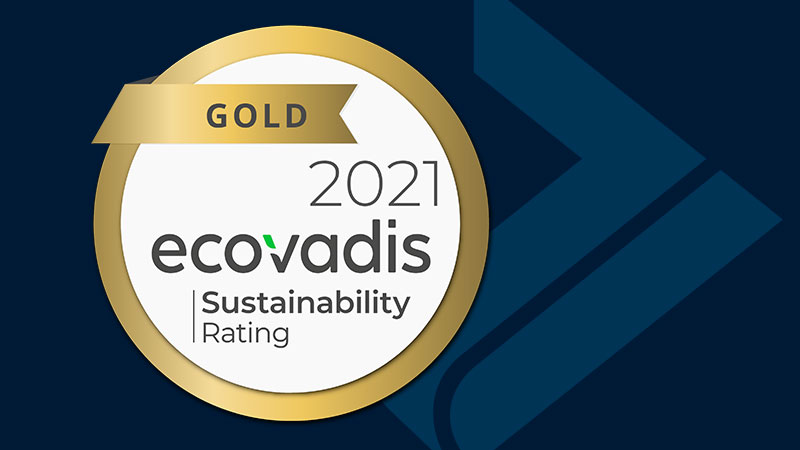The EcoVadis Rating assesses companies across a number of areas that are key to meeting sustainable targets. These include the environment, labour and human rights, ethics, and sustainable procurement impacts. The latest report from EcoVadis highlights that AnQore performed very well across all areas, particularly in regards to its environmental practices.

Committed to sustainability
Pieter Boon, CEO of AnQore comments: “With Europe on its trajectory to become carbon neutral by 2050, AnQore is highly committed to speed up our path towards carbon neutrality and to become a truly sustainable company. We have been active on several fronts. First, we have been the first in the world since 2019 with a 100% sustainable version of acrylonitrile, that we named Econitrile. Second we have recently started to purchase 100% of our electricity needs from renewable sources. Finally we work with our site partners at the Chemelot location towards a fully sustainable chemicals cluster by 2045. What is important to realize that with EcoVadis we demonstrate to our customers and business partners that we are serious about doing business in a responsible way. In addition it also serves as a valuable tool to help steer change within the value chain we operate. Each year the bar is raised to remain top quartile by suppliers engaging their suppliers to improve and get certified. That matches AnQore’s ambition to maintain our leading position in our sector whilst providing benefits to our neighbors, partners, customers and employees.”
EcoVadis
Established in 2007, EcoVadis is one of the world's largest providers of sustainability assessments, evaluating companies from over 200 industries in over 160 countries. The assessment is carried out based on a survey completed by the companies and comprehensive documentation analysed by EcoVadis. The methodology is based on international standards for sustainable development, such as the Global Reporting Initiative (GRI), the UN Global Compact and the ISO 26000 standard. The independent assessment process is supervised by an international scientific committee.